
John le Carré died today, and the world is both better for having had him, and poorer for having lost him.
For many, the name will have little resonance beyond, perhaps, triggering a mild recall of having seen his name on a bookshelf somewhere, or perhaps in the credits of a movie. For others, the news of his passing is cause for great mourning; I myself recited the mourner’s kaddish for him this evening before Hanukkah dinner. For John le Carré is a name to stand alongside Ian Fleming and Len Deighton in the annals of spy literature; an author who held up a magnifying glass to the underbelly of midcentury espionage and, rather than romanticize or glamorize it, instead deconstructed it in altogether more farcical terms.
For the uninitiated: John le Carré was born David Cornwell in 1930s England to an absentee mother and a gangster father, with the cumulative result being that he found himself ripe material for recruitment into MI5 (England’s essential analogue to the FBI), who was in want of volatile young men from broken homes seeking a sense of belonging, used to a chaotic atmosphere, and ready to listen to the first sympathetic paternal figure to come their way. His tenure in that organization paved the way for a stint in MI6 (of Bondian fame), during which time he began to pursue his true passion of writing novels; le Carré completed three before his cover was blown by Soviet double agent Kim Philby, a British aristocrat and fellow MI6 agent who became disillusioned with the British Empire’s ignominious role in post-WWII global politics and decided to throw in his lot with the Soviet cause. Exposed rather than killed (like many of Philby’s other victims), le Carré was hastily recalled to England; and while his career in the spy game may have been brought to a premature end, his career in literature had only just begun. Over the course of the next half-century, le Carré would gift the world with over two dozen books that looked at spying not in terms of men running through island fortresses with guns, matching wits with deformed supervillains, and seducing beautiful women, but rather with the more mundane aspects of the job.
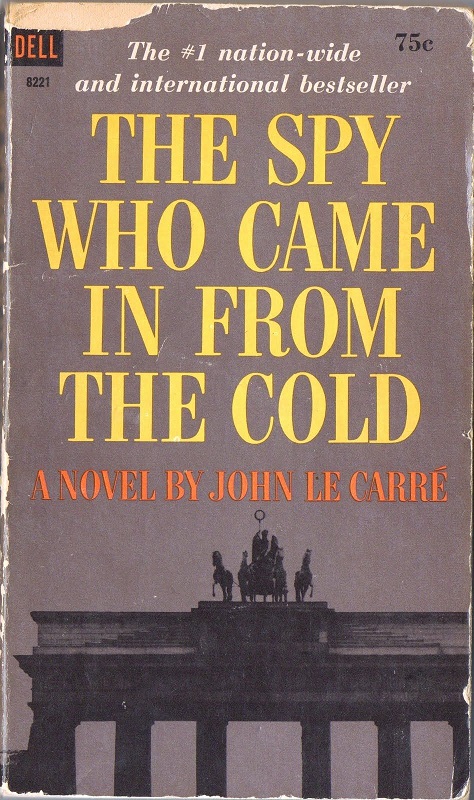
Le Carré’s spies gripe about paperwork, bicker with one another over interdepartmental rivalries, casually send their assets off to die behind enemy lines while requisitioning office supplies, and generally act in a matter more befitting an episode of The Office than an entry in the Bond franchise. While Tinker, Tailor, Soldier, Spy (an essential retelling of le Carré’s own exposure by Philby) is undoubtedly his magnum opus and the basis for two very different cinematic adaptations (a 1970s miniseries starring Alec Guinness and the seminal 2011 film featuring Gary Oldman), it was his third novel — The Spy who Came in from the Cold — that not only put him on the literary map but which served as the basis for what’s arguably one of the greatest films of the 20th century.
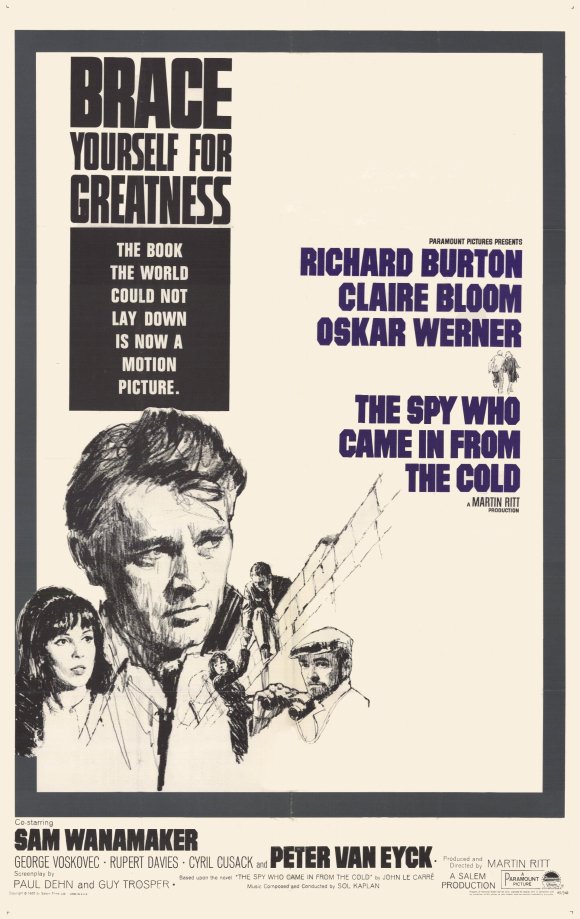
THE SPY WHO CAME IN FROM THE COLD tells the story of Alec Leamas (Richard Burton), head of Berlin Station, the division of MI6 (or, as it’s codenamed in le Carré’s books, “The Circus”) responsible for monitoring East Germany. A once successful commando with a solid track record of killing Nazis for Queen and Country in WWII, Leamas’ Cold War life has been less auspicious: as head of Berlin Station, he’s lost all but one of his spies, each of whom have been identified, arrested, and executed by Hans Dieter Mundt, Leamas’ analogue within the Stasi. As it happens, Leamas is about to lose all of those spies. In one of the most memorable openings in the history of spy cinema, Leamas watches in horror as his final asset makes a last-ditch attempt to escape Berlin, trying to ride a bicycle to safety through a checkpoint at the Berlin Wall only to be ruthlessly gunned down. With all his men dead, a disgraced Leamas is recalled to England to answer to Control (Cyril Cusack, in a scene-stealing performance of Satanic malevolence), the spooky, shadowy figure who serves as the head of the Circus. There, Control offers him two options: He can either accept that his best days are behind him and live out the remainder of his career in relative comfort in Merrie Old England, or he can go “out in the cold” on one final mission — one that Control assures him will result in Mundt’s death. Although Leamas makes few statements regarding guilt, it’s clear that the deaths of the people under his command weigh heavily on him, and the promise of avenging them is too alluring to turn down. Thus begins a twisted series of double-and-triple crosses, as Leamas feigns Communist sympathies to draw the attention of Mundt’s superiors, all with the intention of planting seeds of doubt about Mundt’s own loyalty. As Leamas soon discovers, though, Control’s plan is more complex than he was willing to explain, and what was supposed to be a simple disinformation campaign turns into a deadly trip to East Berlin that puts him — and his unwitting girlfriend — at the center of a bloody power struggle within the Stasi.
Every element of THE SPY WHO CAME IN FROM THE COLD coalesces exactly as it needs to create a perfect film. Martin Ritt’s direction is superb, and along with DP Oswald Morris, he brings to life a cold, stark world full of cold, stark men. Presented in a beautiful black-and-white that drives home both the desperation and isolation of Leamas’ world and underscores the complex moral ambiguity at the heart of the story, there isn’t a wasted shot, not a moment of film that feels extraneous. Every frame drips with atmosphere, from the populated yet lonesome feeling streets of London to the claustrophobic interiors of a German hunting lodge that serves as the setting for much of the film’s third act (the set design for the Berlin sequences alone deserves its own article). In terms of sheer aesthetic, THE SPY WHO CAME IN FROM THE COLD is a beautiful film, even when the images it’s presenting — including a derelict section of the Berlin Wall and a German torture chamber — are spiritually ugly. Not since Edward Hopper have tableaux of despair been at once so gorgeous and so captivating.
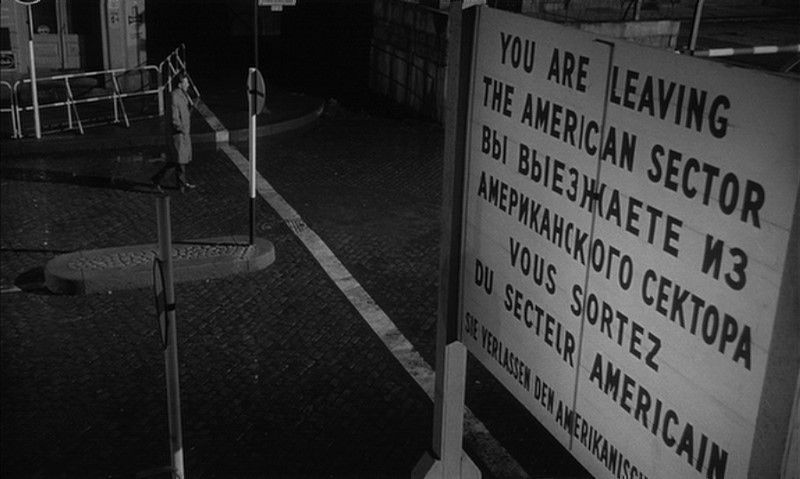
The script by Guy Trosper and Paul Dehn — who similarly adapted Ian Fleming’s GOLDFINGER into what’s arguably the best adaptation of the Bond series — leaves nothing of importance out of the book while also streamlining numerous elements, making THE SPY WHO CAME IN FROM THE COLD one of the few cinematic adaptations that’s arguably even better than the source material. What initially appears to be a very simple plot progressively builds in complexity, intensity, and cruelty until what’s seemed like a revenge thriller quickly spirals into something very much else. le Carré certainly didn’t invent the twist ending, but, he certainly came up with one of the best in the history of literature, and Dehn has enhanced its impact here by subtly teasing the film’s various third-act reveals in ways that are only apparent upon subsequent viewings. Indeed, one of the reasons I’m being rather esoteric in my praise is that a first-time viewing is significantly benefitted by going into the film with as little information as possible; in the best tradition of spy fiction, no one here is quite who they seem to be, and there’s tremendous pleasure to be had not only from learning characters’ secrets but also their hidden depths of humanity. Indeed, against le Carré’s best intentions — he very publicly voiced his desire for THE SPY WHO CAME IN FROM THE COLD to de-glamorize the espionage world — there’s a Romantic strain at the heart of the story in both the upper-and-lower case sense of the word. To the latter, there is, of course, Leamas’ begrudging affection for Nan Perry (Claire Bloom in a fantastically understated performance), an idealistic but terminally daft nineteen-year-old communist librarian who unwittingly comes to play a role in Control’s grander scheme. Moreso, though, Leamas — for all of his pissiness, alcoholism, and gullibility — is someone who feels deeply for the world. Whether he wants to admit it or not, he feels the blood of his dead colleagues is on his hands and he’s out to avenge it by any means necessary. At the same time, he realizes the ultimate futility of his role in the big picture, and of the uselessness of spying itself. In one of the greatest monologues in cinema history, Leamas delivers what could be called the “We are not Bond” speech, articulating his true role in global events:
“What the hell do you think spies are? Moral philosophers measuring everything they do against the word of God or Karl Marx? They’re not! They’re just a bunch of seedy, squalid bastards like me: little men, drunkards, queers, henpecked husbands, civil servants playing cowboys and Indians to brighten their rotten little lives…”
The speech goes on, and I’ll omit the rest to avoid the many spoilers it contains, but it’s at once le Carré’s own deconstruction of the ostensible romanticism of the spy world and, simultaneously, a grandly romantic moment for Leamas, as he drives willingly with Nan towards a fate he knows is now entirely out of his hands. It’s not a spoiler to say that the film ends where it began, at the Berlin Wall, where the great symbol of cultural division becomes, for Leamas, the site of his finest hour, as the film culminates in one of the grandest acts of stoic Romanticism in espionage cinema.
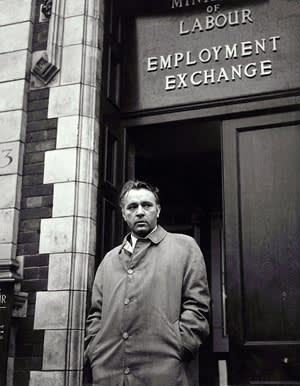
Which leads to the great keystone of this cinematic Arc de Triomphe: Richard Burton. While every performer here is in top form, it’s Burton’s turn as Leamas that cements the film’s legendary status. A lesser actor could have made Leamas an unsympathetic bastard, a reactionary hothead and belligerent drunk; it’s Burton who finds the soul at the core of the character and brings it to full, human life, allowing all the nuances and complications of a superficially uncomplicated man to rise to the surface. To see Burton act here is a revelation; that he was nominated for an Oscar, but lost to Lee fucking Marvin for CAT fucking BALLOU is an eternal testament to the poor choices of the Academy and Hollywood’s general lack of appreciation for great talent. If he spent the last years of his career meandering in exploitation garbage like THE KLANSMAN because he felt slighted, he had every right — he does more with his role in THE SPY WHO CAME IN FROM THE COLD than some actors do with the entirety of their careers. (Any mention of superb acting in THE SPY WHO CAME IN FROM THE COLD would be incomplete without further discussion of Cyril Cusack’s turn as Control; with only a few minutes of screentime, he makes him one of the most memorable supporting characters and greatest villains in espionage cinema, playing him less as Bernard Lee’s Churchillian M and more like your creepy uncle who’s never really done anything inappropriate, but who definitely has a dead body under his house. It’s a quietly wrong performance that’s oh so right).
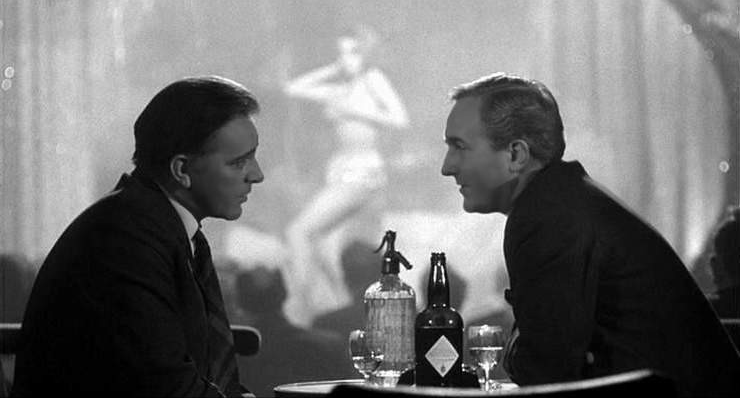
I could continue to extoll the virtues of THE SPY WHO CAME IN FROM THE COLD for pages more. The movie manages at once to be a scathing indictment of Soviet Socialism and a raised middle finger to the blind embrace of capitalism; there’s a fantastically realized subplot about the survival of Nazism past World War II that’s disturbingly relevant today. The film features the first cinematic appearance of le Carré’s recurring hero George Smiley — a morbidly obese, chronically cuckolded, socially awkward spy who nonetheless always succeeds in quietly eliminating his enemies through politeness and Machiavellian cunning — played here as a supporting character by Rupert Davies in the most physically accurate representation of the character the screen has ever seen. Leamas’ diatribes to his Stasi handlers about life in Britain contain some excellent zingers that could be spoken on any news program circa 2020 and not sound out of place (“I reserve the right to be ignorant. That’s the Western way of life”). It’s all the more reason to go check it out for yourself. So log offline, hop onto Prime, and queue up THE SPY WHO CAME IN FROM THE COLD in memory of a singularly unique author who may have left this Earth, but who’s left a profound — and essential — legacy in his wake.
Tags: Action Film, Anthony Harvey, Beatrix Lehmann, Bernard Lee, Books, Claire Bloom, Cyril Cusack, David John Moore Cornwell, Drama, Esmond Knight, Espionage, George Mikell, George Smiley, George Voskovec, Guy Trosper, History, John Le Carré, Martin Ritt, Michael Hordern, Michael Ripper, Nancy Nevinson, Niall MacGinnis, Oskar Werner, Oswald Morris, Paul Dehn, Peter van Eyck, Richard Burton, Richard Caldicot, Richard Marner, Robert Hardy, Rupert Davies, Sam Wanamaker, Sol Kaplan, Spies, Spy Fiction, Steve Plytas, Suspense, The 1960s, The Cold War, The UK, Tributes

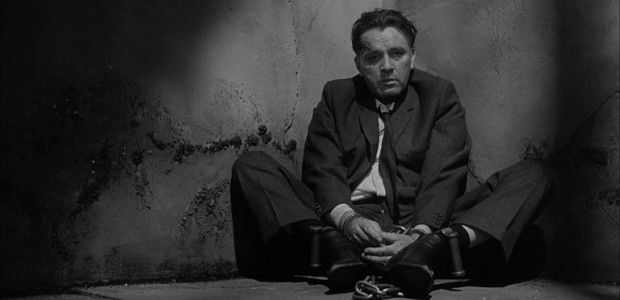
No Comments